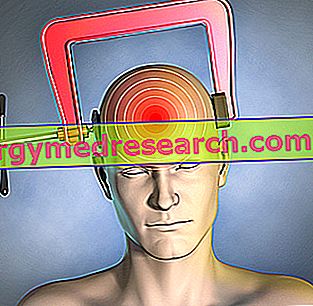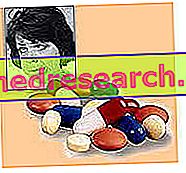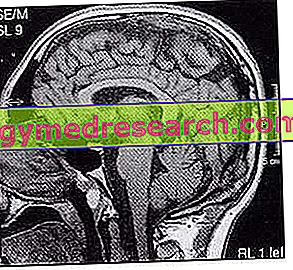Definition Confusion is an acute, often reversible, disorder of attention, cognitive ability and level of consciousness. The result is a sense of unease, agitation or, in the most serious cases, delirium. The confusional state is generally a consequence of an underlying disease, medical complications or the intake of particular drugs or psychoactive substances
Category health of the nervous system
Generality Tension headache is the most common form of headache and, relatively, the least painful. The disorder mainly depends on the involuntary and continuous contraction of the neck and shoulder muscles , associated with fatigue and tension. The tension headache is more common in the female sex and it mainly affects people who spend a lot of time sitting in incorrect positions or accumulate stress
Definition of convulsion Often unpredictable, the convulsions consist in a series of involuntary, abrupt and uncontrolled movements, of the voluntary musculature, responsible for agitation and spasms of the body. During a seizure, the victim's muscles contract and relax repeatedly, for a variable amount of time depending on the severity of the condition
What are convulsions The convulsions manifest themselves with involuntary, abrupt and totally uncontrolled contractions of the voluntary skeletal muscles, and constitute the motor variant of a paroxysmal neuronal hypersynchronization . As analyzed in the introductory article, convulsions are heavily influenced by systemic / metabolic factors (hyperpyrexia, hypoglycemia, malignant hypertension, hypomagnesemia, hypoxia, drug poisoning etc
Definition In the absence of infectious diseases affecting the central nervous system, febrile convulsions outline convulsive episodes, critical or otherwise, typical of children aged between 6 months and 6 years. Seizures in the course of febrile pathologies seem to be one of the most common neurological disorders of the pediatric age
Feverish convulsion: definition More than a single clinical entity, febrile convulsions constitute a syndromic variant that groups together different types of simple and / or epileptic seizures. Despite the odds that a child affected by a febrile seizure develops epilepsy is rather scarce, medical advice and, possibly, hospitalization are always essential
Scroll down the page to read the summary table on dyskinesia Disorder Dyskinesia: is part of the kinetic disorders. It consists of involuntary-hyperkinetic or hypokinetic- movements of the musculature. Dyskinesia represents an appreciable difficulty in controlling muscle movements. Etiopathological framework of dyskinesia Traumatic events, autoimmune diseases, ischemic pathologies of cerebral circulation, CNS infections, disorders of peripheral nerves and degenerative genetic diseases or caused by improper use of drugs Dyskinesias and DIMD DIMD: heterogeneous group of movement disorders induced
What is dyskinesia? Among the kinetic disorders, dyskinesia undoubtedly plays a cardinal role: the term refers to some involuntary movements of the musculature, which are hyperkinetic in some cases and hypokinetic in others. In all the pathologies in which there is an involuntary and uncontrolled reduction or increase in voluntary movements or, again, in an evident muscular difficulty, one can speak correctly of dyskinesia
Definition of dyskinesia Dyskinesia is the headline of kinetic alterations: in the introductory treatment we have studied the different types of dyskinesias and the causes that trigger motility disorders. In this short article we will analyze the general clinical picture, therefore the altered kinetic manifestations induced by dyskinesias, and the possible risk factors for their onset
Scroll down the page to read the summary table on dystonia. Dystonia Listed among the movement disorders known as dyskinesias, dystonia causes involuntary muscle contractions and spasms, which force the affected subject to take abnormal physical postures unusual movements Characteristics of movements dystonic Abnormal physical postures Uncomfortable and twisted postures Unusual movements, often painful and repetitive Reversibility of the dystonic position: not always possible immediately Dystonia: incidence 1988: first epidemiological study 300 patients every million healthy subjects; After som
Definition of dystonia Dystonias constitute a heterogeneous group of motor-muscular disorders, unfortunately destined to often worsen during old age. The spasms and involuntary contractions of the musculature force the subject to assume uncomfortable, abnormal and bizarre positions, as well as postural, sometimes painful twists





